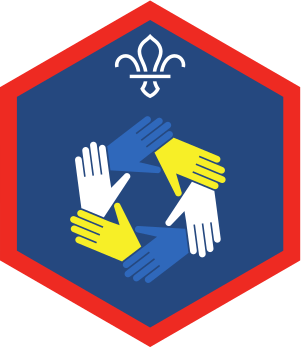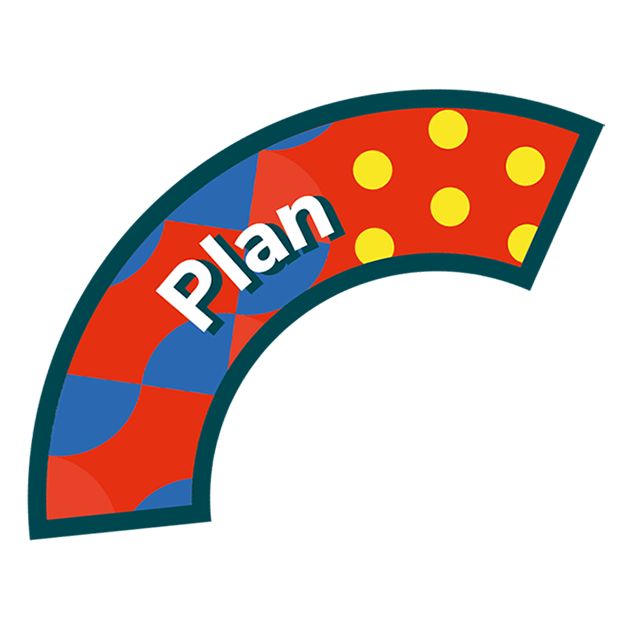
Run a Scout Troop forum
You’ll need
- Tables
- Chairs
- Big pieces of paper
- Pens or pencils
- Coloured pens or pencils
Before you begin
- For the Scouts Teamwork Challenge Award, people need to take part in four Troop Forums. This is just one way to run one – keep it fresh by trying something different each time. Why not let young people take the lead and run their own?
- Set up four tables around the room. Put sticky notes, scrap paper, big sheets of paper, and pens and pencils on each table.
Running this activity
- Everyone should get into a circle. Give everyone a pen or pencil and a sticky note (or piece of scrap paper).
- Explain that forums are a chance for everyone to share their views on the things that affect them. They’re useful spaces to discuss everyday things (such as the things people do every meeting) as well as bigger events (like camps).
- Everyone should write a topic they’d like to discuss on their sticky note. It’s up to them what they choose. Some examples are places they’d like to visit, activities or adventures they’d like to try, badges they want to do or feedback on what they’ve already done.
- Put the sticky notes in the middle of the circle.
- Now, look at all of the suggestions. Ask everyone to quickly group similar ones together.
- Choose four suitable suggestions and read them out. These are the first four topics for the talking tables.
- Put one topic on each table, then everyone should join a table. They should choose their table by thinking about the topic, not who else is there!
- Everyone should add their ideas to the table and take time to chat about the topic. Each table should make sure that the ideas are getting written down – it doesn’t matter if everyone writes their own ideas or if one person writes for everyone.
- After a while, people should move to another table whenever they’re ready. Remind everyone to move if they haven’t already.
- Once everyone’s had enough time to visit the tables, collect all of the paper and sticky notes.
- Gather everyone back together. People may want to discuss and summarise what they talked about at each table, but it’s best not to take too long to go back over it all – people can learn from what was written down.
- Choose four new sticky note suggestions for the tables, then restock the tables with paper and sticky notes.
- Everyone should repeat the same steps by choosing a starting table, then moving around each one.
- At the end, the volunteer team can take all of the information away and use them to help plan. For example, suggestions about activities should inform the next term’s plan, and suggestions about ways to hold a forum should help shape future chances for people to share their ideas.
Reflection
This activity was all about communicating and being a citizen by sharing views and hearing other people’s ideas. It can be scary to speak in front of a big group. Did people find it easier to speak in front of a few friends? Would they have felt less comfortable speaking in front of everyone? Did people find it easy to take time to really listen to others’ views, not just think about what they wanted to say next? Listening is a really important part of communicating, and good listening involves much more than just hearing what someone else says. How did other people’s ideas make people feel? Did they always agree? If they disagreed, how did they make sure they stayed respectful?
Safety
All activities must be safely managed. You must complete a thorough risk assessment and take appropriate steps to reduce risk. Use the safety checklist to help you plan and risk assess your activity. Always get approval for the activity, and have suitable supervision and an InTouch process.
- It’s up to you how many tables you have – four is just a suggestion.
- If people need more structure, set time limits and remind them to move on.
- If people struggle to structure a discussion that includes everyone, they could take it in turns to speak. They could even pass around an object to help them take it in turns – only the person holding the object should speak.
Different people will prefer to share their thoughts in different ways. Make sure everyone knows it’s OK to prefer to write or speak – everyone at the table should work together and support each other. It might be helpful to give people some thinking time before the discussions begin, or people could work in pairs at the tables if that would help. An adult could ‘chair’ the discussion at each table if they need to.
All Scout activities should be inclusive and accessible.
If anyone was particularly enthusiastic about one of the topics, see if they want to get involved with making people’s suggestions happen. Could they take on the challenge of planning something?


